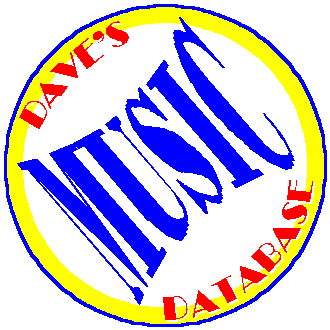History:
“Michael Clarke was the original drummer of the Byrds, appearing on their first five albums before leaving around the end of 1967. Clarke was the least talented of the five members that were on the Byrds' 1965-67 recordings, as unlike the other for he did almost no songwriting. His drumming was basic and for the most part appropriate for the Byrds' needs, although he was sometimes replaced by session men. Still, he fit in well with the band visually, and proved that his drum skills were not marginal via subsequent hitches in the Flying Burrito Brothers and Firefall, along with session work for several of the ex-Byrds' solo projects” (Unterberger).
“Clarke, like all of the Byrds, had little experience playing electric rock'n'roll music when the band, at that time called the Jet Set, formed in 1964. At least the other four members had a good deal of professional experience as acoustic folk musicians; Clarke didn't even have that. Born Michael Dick in Spokane, WA, he was on the road by the time he was 16, and played congas in coffeehouses in the San Francisco Bay Area. It was at a coffeehouse in San Francisco that he first met Jim (later Roger) McGuinn, then a guitarist with the Chad Mitchell Trio. Shortly afterwards Clarke met David Crosby in Big Sur, and Crosby said Clarke should come to Hollywood and get involved with his new rock group. Looking like a Californian Brian Jones, he was hired (as was the Jefferson Airplane's Skip Spence) because he looked the part, rather than for his rudimentary percussive skills. In fact, he didn't even have the right equipment, and in early rehearsals Clarke used cardboard boxes” (Unterberger).
“It has sometimes been written that session musicians played much of the music on the Byrds' early recordings, but with the exception of the "Mr. Tambourine Man" single (on which McGuinn was the only one to play an instrument), research has indicated that the group did in fact play their own instruments in the studio. Suspicion has been directed at Michael Clarke as the least talented of the Byrds' musicians, but even numerous bootleg tapes have his voice coming in loud and clear with comments and responses as the Byrds work out arrangements. The best of his drum work is certainly contained on Eight Miles High, where he pushes the band with a relentless, jazz-like verve, especially during the guitar solo. Clarke was not a songwriter, but he was granted a cowriting credit on one of their worst early tracks, the soul-blues instrumental Captain Soul, and cowrote (with McGuinn and Chris Hillman) Artificial Energy” (Unterberger).
“Clarke became less enthusiastic about the Byrds during 1967, as the group's pop success was diminishing, and he wasn't too taken with the material on their fifth album, The Notorious Byrd Brothers. In fact, session drummer Jim Gordon does replace Clarke on some tracks on that record. After the record was completed, around the end of 1967, Clarke was fired. As David Crosby had been fired just a couple of months or so earlier, the era of the ‘classic Byrds’ had in effect ended, with only McGuinn and Hillman remaining from the lineup on the first album. Clarke went to Hawaii to take a non-musical job at a hotel” (Unterberger).
“Less than a year later, however, Clarke was back in the studio, backing Dillard & Clark on their album The Fantastic Expedition of Dillard & Clark, and then joining the Flying Burrito Brothers in time for their second album, ,i>Burrito Deluxe. He stayed in the Burritos for a few years, reunited with the Byrds for the mediocre Byrds comeback album, and then found success as drummer for the soft rock group Firefall in the last half of the 1970s. He helped out on solo projects by Chris Hillman, Gene Clark, and Roger McGuinn. In the 1980s he played for a while in Jerry Jeff Walker's band, and then drummed in various aggregations that were billed as ‘featuring the ex-Byrds,’ ‘The Byrds’Michael Clarke and,’ and so on. He drew the enmity of several ex-Byrds by billing the band he toured with in the late 1980s and early 1990s as the Byrds. He died of liver failure on December 19, 1993, at his Florida home” (Unterberger).
Biography Sources:



